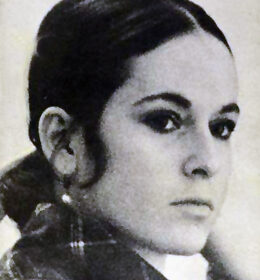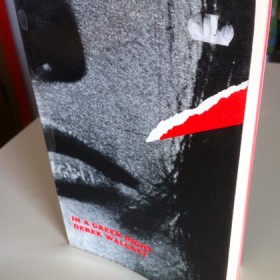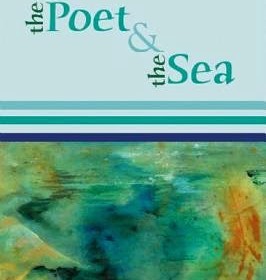-

Adios, Louise Glück
THE MOUNTAIN by Louise Glück My students look at me expectantly. I explain to them that the life of art is a life of endless labor. Their expressions hardly change; they need to know a little more about endless labor So I tell them the story of Sisyphus, how he was doomed to push a rock up a mountain, knowing nothing would come of this effort but that he would repeat it indefinitely.Read More
-

Louise Glück Wins the Nobel Prize
I’ve always loved Louise Glück’s poetry, which has always presented an almost Rilkean inwardness. The Nobel literature committee’s choice evidently came as a surprise. After all, the hapless Alex Shephard at The New Republic just two days ago included Glück on his “These Americans Aren’t Going to Win” list. He pegged her odds at 25-1 and added this remark: “Least irritating poet whose work you regularly encounter on Instagram.” Just how irritating she is Mr. Shephard may have occasion to tell us in a future issue of TNR.Read More
-

The Work of the Poet
From a fine remembrance of Derek Walcott by Bert Almon: He repeatedly said that forms actually free the imagination. He had advice for writers when metre falters: “If the metre peters out, stop. Solve the problem, it’s a gift of discovery. Start a new sentence.” As for rhyme, he stated that “every line of verse wants to rhyme. Every line expects to be coupled.” But he also said that “Rhyme is a precipice,” because you might not find the right rhyme.Read More
-

Derek Walcott on the Poet’s Voice … and Much More
From a Bill Moyers interview with Derek Walcott: It takes you all your life to write the way you speak without faking it. I mean I think it’s very hard for a poet, very-very, very-very hard to get to hear his own voice without affectation. I mean I couldn’t read my poems with a British accent, or an American accent. You know, there’s an inner thing that makes me speak, I hope, the way I would write—tonally, not just in terms of vocabulary.Read More
-

Sea Poems of Juan Ramón Jiménez
The great Juan Ramón Jiménez often drew inspiration from the sea, and a great many of his sea poems are brought together in The Poet and the Sea, translated by Mary G. Berg and Dennis Maloney. What follows is one of my favorites: IDEAL ARRIVAL February 11 To Joaquín Sorolla Suddenly, the afternoon opens out, like a golden fan, a great royal illusion.Read More
-

Adios, Wisława Szymborska
“Poland’s 1996 Nobel Prize-winning poet Wisława Szymborska, whose simple words and playful verse plucked threads of irony and empathy out of life, has died. She was 88. […] The Nobel award committee’s citation called her the ‘Mozart of poetry,’ a woman who mixed the elegance of language with ‘the fury of Beethoven’ and tackled serious subjects with humor.” More here. * * * Hiroshige Utagawa, “Evening Showerat Atake and the Great Bridge” PEOPLE ON THE BRIDGEby Wisława Szymborska(tr.Read More
-

Tranströmer Wins the Nobel
My Introduction to Tranströmer: fromRobert Bly’s Seventies Press,translated by Bly, 1970, with theSwedish originals en face I have heard the Swedes singing cheek to cheek.I do not think they will sing to me. But that’s ok. I feel like they’ve sung to me—sort of—because Tranströmer was on the No Bull Prizes list I posted back in 2007. The NYT calls his poetry “bleak but powerful,” which is only half true, because Tranströmer (it seems to me) is seldom bleak.Read More
-

Szymborska’s “The Joy of Writing”
Wisława SzymborskaPhoto: Adam Golec©Agenca Gazeta THE JOY OF WRITINGby Wisława Szymborska Why does this written doe bound through these written woods?For a drink of written water from a springwhose surface will xerox her soft muzzle?Why does she lift her head; does she hear something?Perched on four slim legs borrowed from the truth,she pricks up her ears beneath my fingertips.Silence—this word also rustles across the pageand parts the boughsthat have sprouted from the word “woods.” Lying in wait, set to pounce on the blank page,asre letters up to no good,clutches of clauses so subordinatethey’ll never let her get away.Read More
-

Another Year on the List
The great Syrian poet Adonis appeared on my own Nobel list three years go, and now that the committee gave the award this year to Mario Vargas Llosa—a wonderful writer—it’s clear that Adonis will spend at least another year on that list. Gerard Russell made a strong case for Adonis a couple of days ago, but there was a string of poets (see below) who won in the 1980s and ’90s, and let’s be honest: it’s a prose world…. Nobel Prizewinning Poets Rudyard Kipling (1907)Rabindranath Tagore (1913)William Butler Yeats (1923)Gabriela Mistral (1945)Hermann Hesse (1946)T. S.Read More
-

Reading Into and the Avant-Garde
Jacket Magazine has published a peculiarly passive-aggressive 4,000-plus word response by Jeffrey Side to a 193 word statement by Seamus Heaney, quoted from Heaney’s interview with Dennis O’Driscoll as published in Stepping Stones: Interviews with Seamus Heaney. (The interview is no longer available online, alas.) Here is the Heaney excerpt; his initial “it” refers to the term “avant-garde”: It’s an old-fashioned term by now. In literature, nobody can cause bother any more. John Ashbery was a kind of avant-garde poet certainly and now he’s become a mainstream voice.Read More

 Joseph Hutchison, Colorado Poet Laureate 2014-2019, has published 20 collections of poems and edited or co-edited three poetry anthologies. He currently directs two master’s-level programs for University College at the University of Denver: Professional Creative Writing and Arts & Culture Management. Joe lives with his wife, Melody Madonna, in the mountains southwest of Denver, Colorado, the city where he was born.
Joseph Hutchison, Colorado Poet Laureate 2014-2019, has published 20 collections of poems and edited or co-edited three poetry anthologies. He currently directs two master’s-level programs for University College at the University of Denver: Professional Creative Writing and Arts & Culture Management. Joe lives with his wife, Melody Madonna, in the mountains southwest of Denver, Colorado, the city where he was born. 









